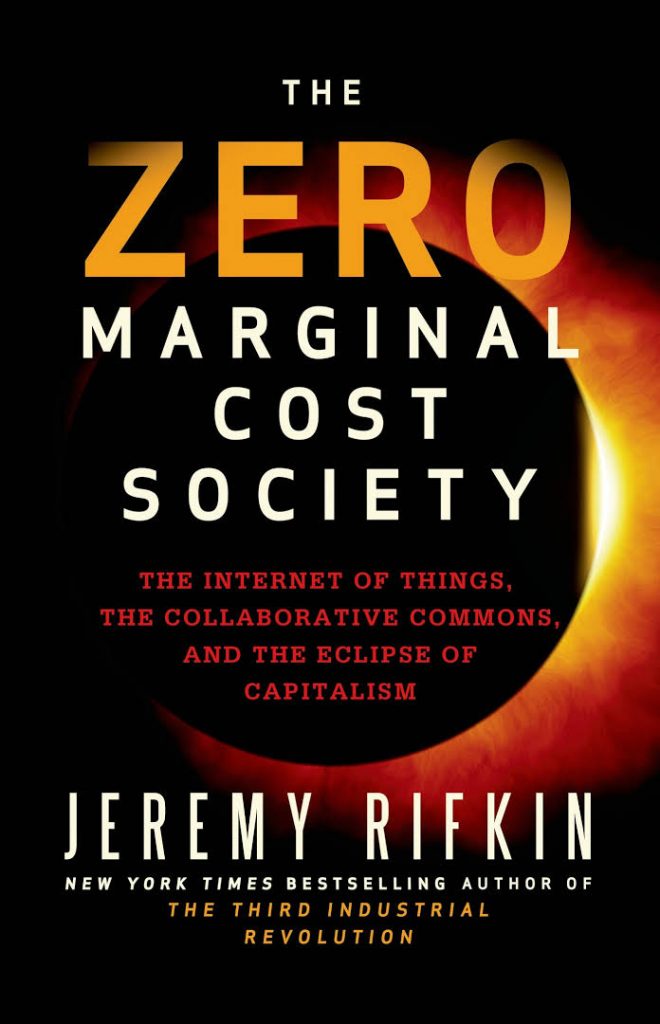This research paper discusses the idea of an emerging collaborative economy that will change the way we interact and do business all over the globe. Based on Jeremy Rifkin’s book “The Zero Marginal Cost Society”, I put the following idea to the test:
Will the Emerging Collaborative Economy Bring Forth Universal Equality?
Speculations of a looming capitalistic age, which dominates the current global economy and market, are emerging around the world. Economists attribute this decline to the fact that capitalism is designed to fail by succeeding. Despite the fact that it has taken over all aspects of human activity, capitalism’s core concept of a free market that allows competition is driving the marginal costs of products and services towards zero. In a model where profit is made at the margins, reaching a near-zero marginal cost is the point where the system collapses and where all commodities become free. This event sparks the transition from an economy of scarcity to that of abundance, bringing forth a decentralized economic model that is based on lateral peer production and sharing, currently known as the Collaborative Commons.
Similar to previous paradigm shifts in the global economy, the transition towards a Collaborative Commons has been sparked by a change in the energy/communication/mobility matrix. The development of technology and the Internet of Things, the network of everyday objects that are interconnected through computing devices, has shortened distances both physically and temporally on a global scale. The transition to this sharing economy is heightened with the development of easily accessible renewable energy, turning consumers into “prosumers” who engage in cycles of interaction both locally and globally. This economical shift from capitalism towards a Collaborative Commons and shared economy will establish universal equality among humans and restore the balance between humanity and the natural environment. This impact is evident in four areas partaking in this new economic model; Producers, consumers, the market, and the environment.
